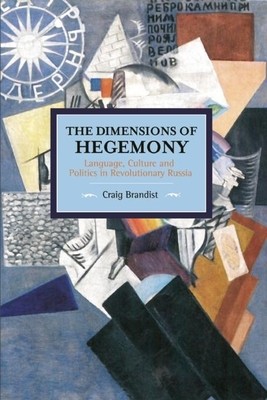
- We will send in 10–14 business days.
- Author: Craig Brandist
- Publisher: Haymarket Books
- ISBN-10: 1608465578
- ISBN-13: 9781608465576
- Format: 15 x 22.6 x 1.8 cm, softcover
- Language: English
- SAVE -10% with code: EXTRA
Reviews
Description
Though generally associated with Antonio Gramsci, the idea of hegemony played an essential role in revolutionary Russia where it was used to conceptualize the dynamics of political and cultural leadership. Drawing on extensive archival research, this study considers the cultural dimensions of hegemony through an examination of early soviet language policies and the debates that surrounded them. This unearthed history shows that considerations of relations between the proletariat and peasantry, the cities to the countryside, and the metropolitan center to the colonies of the Russian Empire demanded an intense dialogue between practical politics and theoretical reflections. It was this dialogue that led early Soviet thinkers to critical perspectives now assumed to be the achievement of sociolinguistics and post-colonial studies.
EXTRA 10 % discount with code: EXTRA
The promotion ends in 19d.15:30:40
The discount code is valid when purchasing from 10 €. Discounts do not stack.
- Author: Craig Brandist
- Publisher: Haymarket Books
- ISBN-10: 1608465578
- ISBN-13: 9781608465576
- Format: 15 x 22.6 x 1.8 cm, softcover
- Language: English English
Though generally associated with Antonio Gramsci, the idea of hegemony played an essential role in revolutionary Russia where it was used to conceptualize the dynamics of political and cultural leadership. Drawing on extensive archival research, this study considers the cultural dimensions of hegemony through an examination of early soviet language policies and the debates that surrounded them. This unearthed history shows that considerations of relations between the proletariat and peasantry, the cities to the countryside, and the metropolitan center to the colonies of the Russian Empire demanded an intense dialogue between practical politics and theoretical reflections. It was this dialogue that led early Soviet thinkers to critical perspectives now assumed to be the achievement of sociolinguistics and post-colonial studies.


Reviews